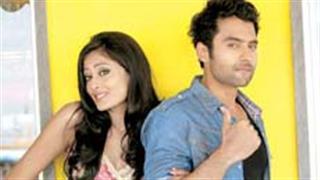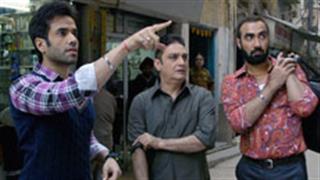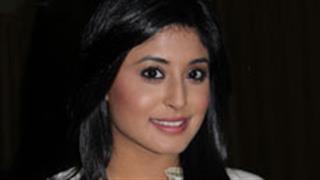/>
Acclaimed actress Nandita Das wants women to stop feeling guilty if they are unable to give their best in a job. She says women need to feel "no pressure to prove" anything to the world.
She salutes the women who "crossed the threshold" and took a "step towards freedom and, in the process, opened doors for other women", and is proud how she was always treated like a son.
On International Women's Day, Nandita shares her views:
"Yet another Woman's Day! No, can't afford to be cynical. I have consciously made sure that cynicism doesn't seep into my life and have striven to be an eternal optimist. And there are indeed good reasons to be. If I
take my own life, I grew up in a family where I suffered absolutely no discrimination and, in fact, being the elder of the siblings, was the 'son' of the family.
Right from my childhood, I had the freedom to make my own choices - in the subjects I took in school, the work that I pursued, the person I fell in love with ... and all other decisions I have taken in my life.
Slowly I became aware that this was not the norm and how fortunate I was to have the space to just 'be'. But both in my human rights work and films, I have met innumerable women who are constantly negotiating
through their circumstances to find that little space where they can make their own choices.
Things have changed over the years, not because of one Jhansi Ki Rani or a Sarojini Naidu, but because of hundreds of thousands of women, who have crossed the threshold and taken that step towards freedom and,
in the process, opened doors for other women.
When I think of that woman, the one who would have been the first to work outside her home, or the first to drive a car, or the one to see a play ... all those things that many of us take for granted. For me, I want to pay
tribute to all those countless faceless, nameless women who probably have no idea, what they did for women at large.
But if there was one thing that I would want to change in us women, across class, is the sense of guilt - always feeling guilty for not being able to do our best. The urban working woman is constantly feeling guilty for
not being able to be a super wife, super mom, super at her work and all the other roles the society, and thereby she has thrusted upon herself.
Conditioning of generations is not going to vanish in a day, but we need to have faith in ourselves and feel no pressure to prove it to the world. Sometimes I wonder how different the world would be, if we had the space
to just 'be'. Whether in a good or bad way, the awareness of being a woman is tiresome.
Why can't we be seen as a 'person' before being seen as a woman. Why a bad male driver is seen as a bad 'driver', but a bad woman driver is first seen as a 'woman'. We all have multiple identities and some of them
are a given.
After all I have had no control over the fact that I am a woman, an Indian, half Gujarati, half Oriya or the fact that I was born in a Hindu family. So when one is made to feel proud or ashamed of
any of these given identities, it feels a bit strange.
I have always believed these and many other acquired identities make me who I am, so why should I have to choose one over the other? Or why should one of the identities be imposed over the others? But having said
that, I have to confess, to me the identity of being a woman has always been the most important one.
Is it because the weight of being a privileged woman makes me want to take up the cause of women who don't have the same privileges? Or is it simply because there is no escaping the identity? Whether in a positive
or derogatory way, one is always first perceived as a woman. For instance, now I am a 'woman director' and not just a director.
I instinctively feel like resisting the label, but maybe there is something different about being a woman director? Often cliches come from a kernel of truth. Maybe men are from Mars and women from Venus ... If there is
a male gaze, there must be a female gaze ... The struggles and ways of seeing are probably different."
Women should stop feeling guilty, urges Nandita Das
Saturday, March 09, 2013 09:24 IST




















